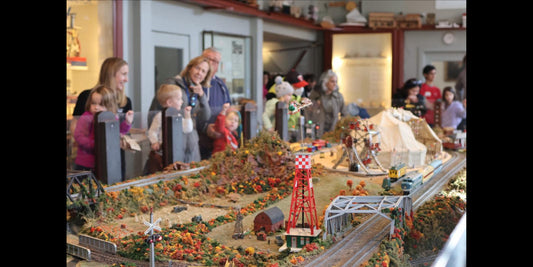El Salvadoreño occupies the first floor of a multi-family house on Campbell Avenue in West Haven, its frontage transformed by a commercial brick buildout. The surrounding stretch of state road is dominated by convenience stores, repair shops, institutional campuses and a general determination on the part of southbound commuters, freshly addled by cascading merges, to get to the interstate. This makes the Salvadoran restaurant easy to overlook, even though its dining room, brighter and airier than you’d suspect, is an oasis among the bustle.
Zoila Moreno opened El Salvadoreño in 2006 and, a year later, it was admiringly reviewed in the New York Times. Its sheer variety of authentic Salvadoran dishes was and is something to behold, with ingredients listed faithfully and bilingually on the menu. Moreno recommended the Pupusas ($2.75 apiece) to start, which are advertised in one of the windows. Pupusas, which apparently originated over 2,000 years ago, are round and made from the same corn flour as tortillas. Otherwise they’re more like a chewy, savory pancake stuffed with a pale, creamy cheese and—most reliably—pork or refried beans, which makes them a meal in and of themselves.
sponsored by
At El Salvadoreño, they’re stuffed in various ways but always served with ramekins of curtido—a deliciously spicy, crunchy shredded cabbage—and a thin but tangy tomato salsa. Inspired by the pupusas’ amphibiousness—they’re both a platform for the cabbage and a mop for the salsa—I tore off pieces with my hands, starting with the Cheese and Loroco option, which is about as authentic a combination as you can get. Loroco is an edible bud that flowers in Central America; here, it provided an almost stewed vegetable quality, like the tip of an asparagus spear. Moreno tells me the pupusas are why many of her regulars keep coming back, and it’s easy to understand why.
As a popular item, the pupusas have also invited experimentation over the years. El Salvadoreño now offers a dozen possibilities. “The carrot was invented by us,” explains Moreno. “We’ve experimented with cheese and chicken, cheese and garlic, cheese and jalapeño.” Having tried a traditional version, I next ordered a Pupusa Loca ($6). Moreno smiled. The Loca has all the fillings and, to accommodate them, twice the diameter of the sane pupusas. But all the pupusas are prepared the same way—made to order and griddled slowly, which, I think, accounts for their simultaneous lightness and density. Moreno later escorted me into the simple, tidy kitchen where her mother Guadalupe Moreno was watching over the next batch, turning them with a spatula on an industrial-sized griddle.
El Salvadoreño is a family restaurant in the sense that Moreno and her family—including her sisters, Arelix and Berta Navarro—do all the cooking there but also in the sense that the food is less a chefy presentation of Salvadoran food than a direct transcription of what the cooks had always eaten at their own family table. In Aguilares, San Salvador, Moreno explains, “we never owned any restaurant. We knew how to cook what we were taught. That is why our food maintains a seasoning like that of our home.”
The Combinaciones section of the menu bears a superficial resemblance to the combos or sampler platters you might see at a TGI Fridays or Ruby Tuesday, but it’s particularly those dishes, according to Moreno, that are plainly Salvadoran. I ordered the Mar y Tierra ($22) most of all to get the shrimp, which arrived inside its shell, perfectly separated along the spine like the lid of a jewelry box. In the same spirit, the ends of the Spanish sausage had been cut into geometric quarters that put me in mind of toddler toys. Nothing on the plate was lit up with the fire of, say, traditional Mexican spices, but everything was straightforwardly appetizing, particularly the flank steak, which had been marinated in what Moreno simply called “typical Salvadoran seasoning.”
It was an absorbing meal, and the dining room, with its spare, unfussy mix of display crafts and vintage furniture and its cupboard-like shelves of Salvadoran dry goods, is a pleasant place to be absorbed. Moreno routinely turns it into a space for birthday parties and baby showers with little rearranging. “This is part of our home,” Moreno says, pointing out that you’re literally a guest in their house, since they live upstairs. “That’s practically why we are working here all the time.”
The restaurant keeps generous hours of operation—seven days a week, nine hours a day. In the beginning, says Moreno, those hours had served El Salvadoreño as a gathering spot along the lines of a neighborhood pub. There were a couple televisions and a pool table. They’ve since renovated, adding pretty pendant lights and colonial-style crown moulding and scratching the pool table. The televisions remain, airing telenovelas in the afternoon with the volume turned down. “It was always a place to play and drink and taste food,” Moreno says. “But now we have transformed it into a place where families can share their weekends in an atmosphere more like home.”
El Salvadoreño
931 Campbell Avenue, West Haven (map)
Daily 11am-8pm
(203) 931-7457
Note: parking available in road-facing spaces at Krauzser’s Food Store next door
Grubhub
Written and photographed by David Zukowski. Image 2 features Zoila Moreno.








